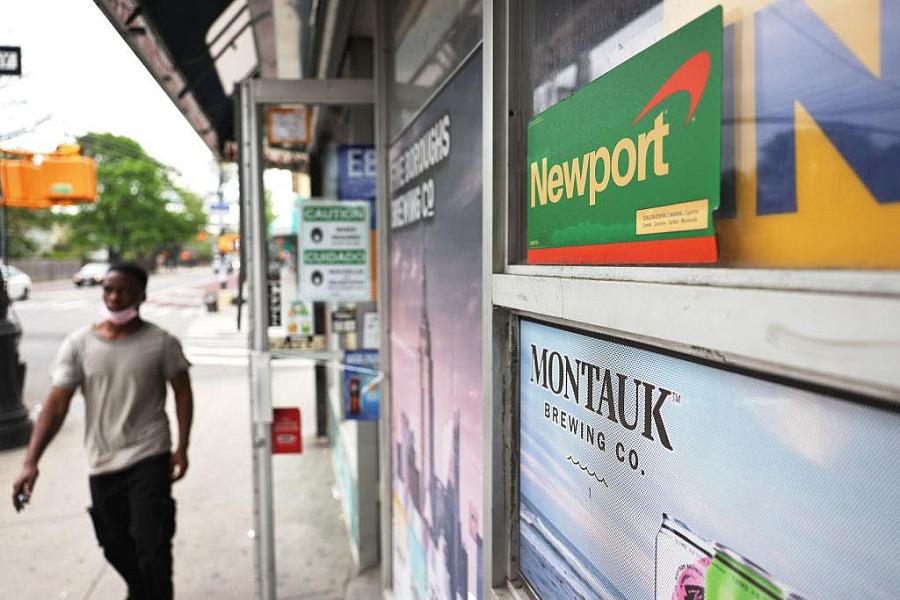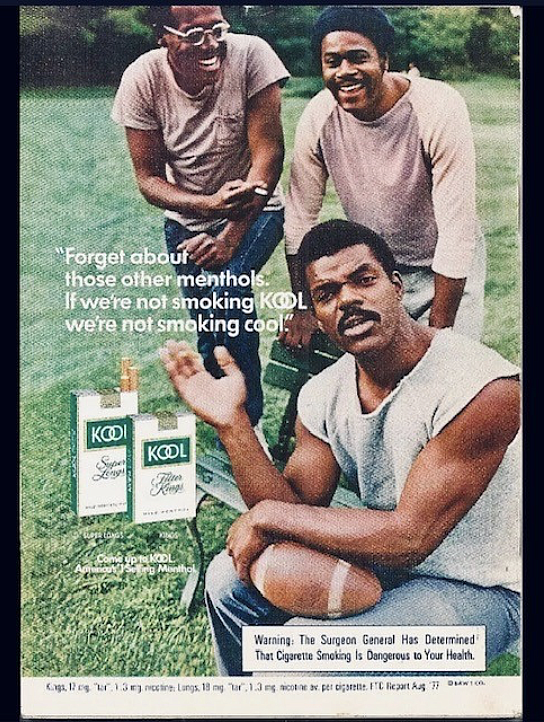The Health Divide: Proposed ban on menthol cigarettes pits health against politics in Black communities

Photo by Michael M. Santiago/Getty Images
We can all agree smoking is bad for your health.
We know that since the 1950s, menthol cigarettes have been heavily marketed toward African Americans through advertising, sponsorship of community and music events, free cigarette giveaways, billboards in predominately Black neighborhoods, magazine advertising, and retail promotions.
Growing up, my parents subscribed to both Jet and Ebony magazines. I still remember how the back flaps of these magazines usually showed an attractive Black man or woman. Sometimes, it was a couple.
In the quote above, the attractive couple usually said, "Forget about those other menthols. If we’re not smoking KOOL, we’re not smoking cool.” Or “Is KOOL fresh tasting? There’s nothing fresher!”
Although I never smoked, most of my relatives did. Menthol cigarette advertising was everywhere growing up.
Today, a menthol cigarette ban is a hot topic that has reached the desk of President Joe Biden.
In December, Biden decided to put off a plan to ban menthol cigarettes until March after several civil rights groups argued that the ban would unfairly target African Americans.
Why would civil rights groups oppose a menthol ban even though smoking-related illnesses are the number one cause of death in the Black community?
Because some of these same groups are sponsored by the same Big Tobacco companies that directly target the Black community.
There are a lot of African Americans who oppose a menthol ban
Nearly 85% of Black smokers use menthol cigarettes, compared to 30% of white smokers, and more than half of all kids who smoke use menthol cigarettes, according to U.S. Senate Majority Whip Dick Durbin (D-Ill.).
In a Dec. 6 speech on the Senate Floor, Durbin urged the Food and Drug Administration and Biden administration to implement a proposed regulation prohibiting the production and sale of menthol cigarettes and flavored cigars.

An old ad from Jet magazine for menthol cigarettes.
“Right before Thanksgiving, I met in my office with Martha Hike, who lives in Chicago. She was in Washington because November is Lung Cancer Awareness Month. She shared the fact that lung cancer is the number one cause of cancer death in America, killing more Americans than breast cancer, prostate cancer, and colorectal cancer combined. She met with me because six of her dearest family members have died from lung cancer due to smoking,” Durbin said.
Durbin was 15 when he lost his father to lung cancer. He said the FDA proposal would eliminate the racial disparity in lung cancer deaths between Black and white Americans, saving 650,000 lives.
Although Durbin gave a convincing argument, Biden decided to delay his decision on the matter to March because of pressure from Black political leaders; the American Civil Liberties Union; the National Organization of Black Law Enforcement Executives; the Rev. Al Sharpton; relatives of slain teen Trayvon Martin; and relatives of George Floyd.
The potential reasons why Blacks are against a menthol ban and the reasons they are citing vary. Here are just a few:
- The National Association of Blacks in Criminal Justice ran ads against a ban. Reynolds American Inc., the second-largest tobacco company in the United States, sponsors them.
- Rev. Sharpton’s National Action Network is against a ban, citing “unintended consequences.” Sharpton held town halls in Black churches criticizing a possible ban. His organization has received funding from tobacco companies, according to Politico.
- Gwen Carr, the mother of Eric Garner, who died after being placed in a chokehold by police in 2014, said a ban unfairly targets Black consumers and worries that enforcement will fall disproportionately harm them. Garner was put in a chokehold by police and died after he was allegedly selling loose cigarettes.
- The National Black State Troopers Coalition opposed a ban because they said it could lead to more negative encounters between law enforcement and African Americans.
- House Republicans said a ban could be a “huge opportunity for Mexican cartels.”
- The National Black Chamber of Commerce said a ban could be considered racially motivated because it infringes on Black smokers’ freedom of choice.
- Sybrina Fulton, whose son Trayvon Martin was shot to death by a neighborhood watch member in 2012, said a ban would lead to more deadly “stop and frisk” encounters between police and young African Americans and create a whole new market for “loosies.”
A lot of Blacks are against such a ban despite research that shows if there were a national ban on menthol cigarettes, about 45% of Black smokers would try to quit, according to Lorraine Lathen, director of the Wisconsin African American Tobacco Prevention Network-Milwaukee.
Stress and tobacco go hand in hand
There is a science behind the addictiveness of menthol. While the nicotine in cigarettes binds to brain receptors, menthol increases the number of these receptors, making the brain even more dependent on the continued use of tobacco and menthol specifically.
The bottom line: The addition of menthol makes it harder for a smoker to stop.
While adult smoking rates were similar between races — 14.4% for Black Americans and 13.3% for whites nationally — Wisconsin is an outlier, according to a recent study.
The adult smoking rate for Black people living in Wisconsin is 30%, or nearly three times higher than white people in the state at 12%, according to Dr. Michael Fiore, director of the University of Wisconsin Center for Tobacco Research and Intervention. That 18-percentage point disparity is the widest gap between Black and white smokers in the nation, he added.
Lathen said Wisconsin is a national outlier.
Wisconsin has issues of joblessness, low wages, housing insecurity, one of the nation’s highest Black male incarceration rates, high Black infant mortality, low Black homeownership, and the widest reading gaps between Black and White students in the country.
This creates stressful situations, and when Big Tobacco markets against a community already stressed out, it’s no wonder people turn to menthol cigarettes.
While President Biden said he would resume conversations around a possible menthol ban in March, I don’t expect a decision to be made.
Tackling this issue now could be a political disaster because Biden is torn between Blacks on both sides of the political scale, public health officials and anti-tobacco advocates, with some turning the issue into one of race.
Isn’t it racist to allow cigarette companies to intentionally market their products to the Black community, knowing full well the consequences are deadly?
